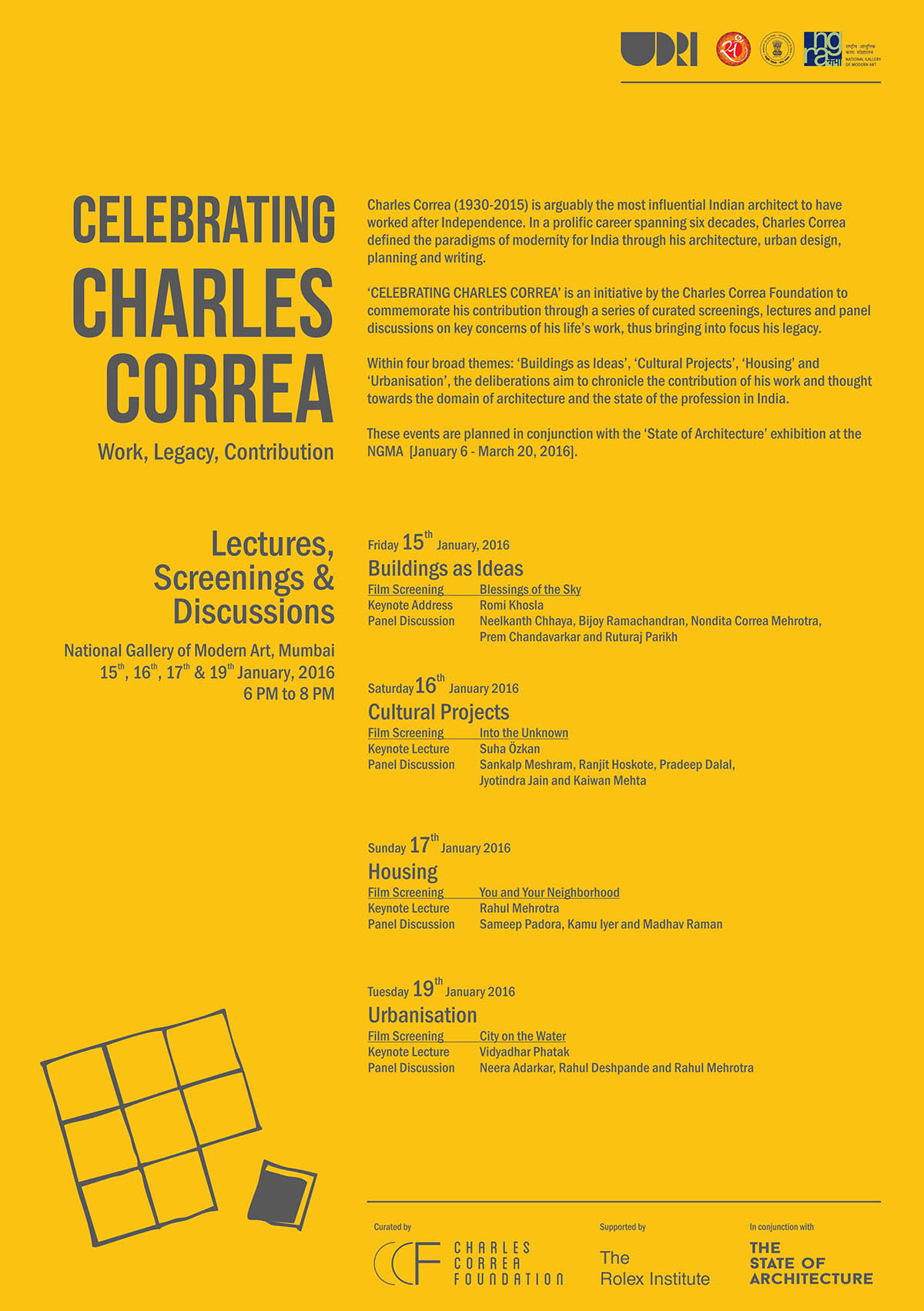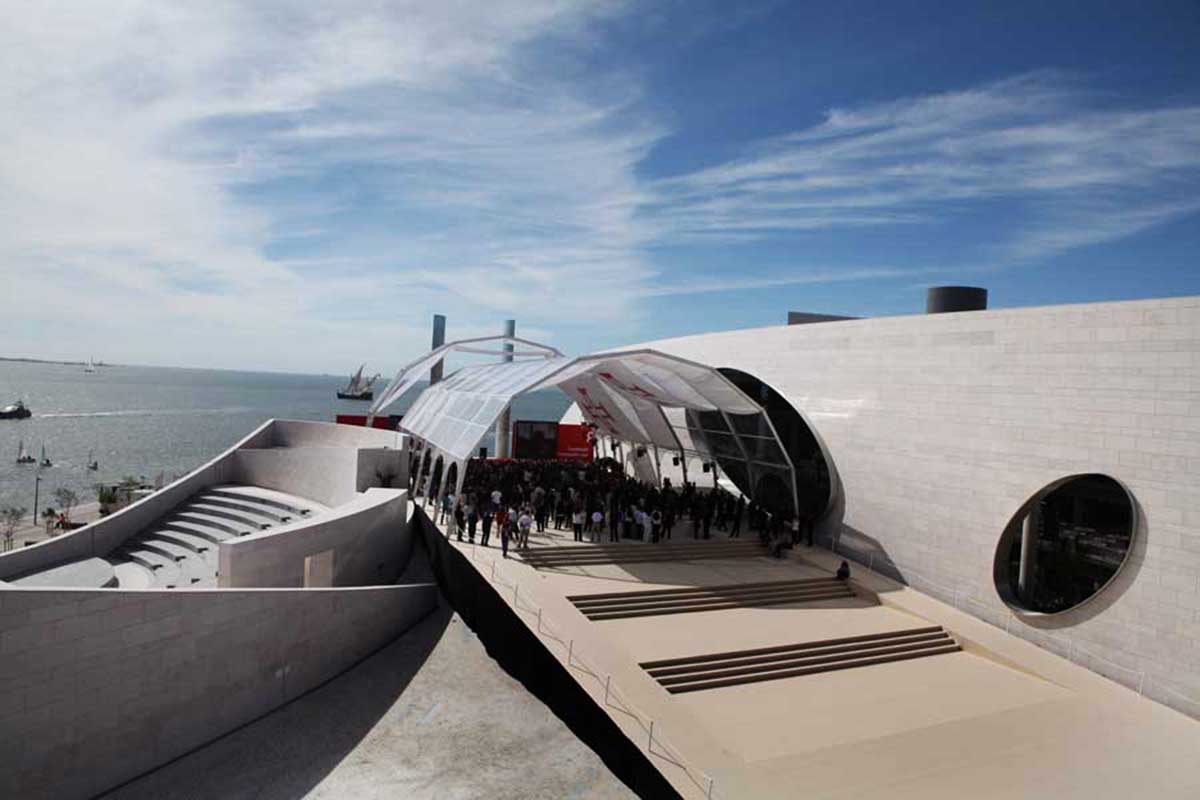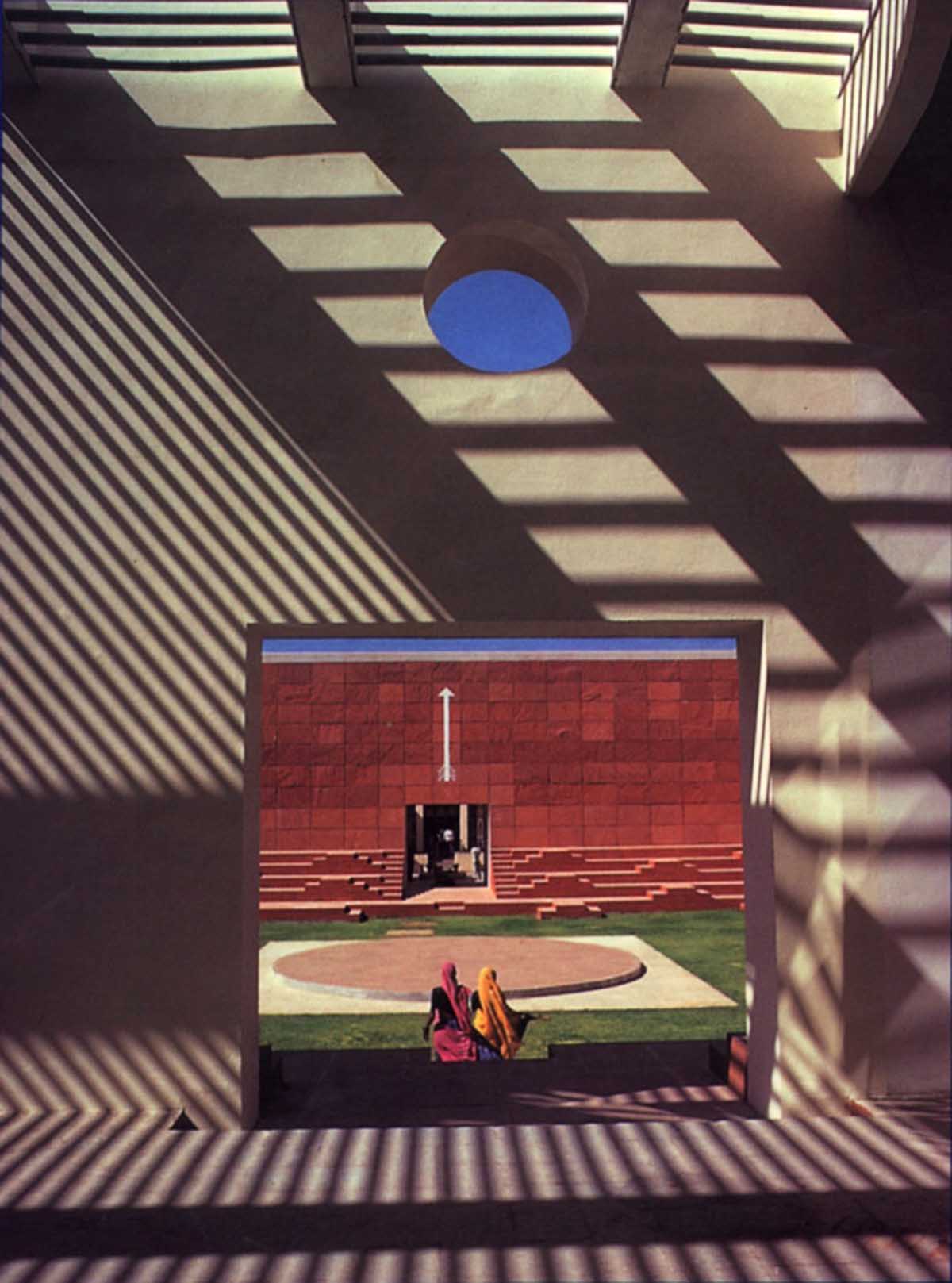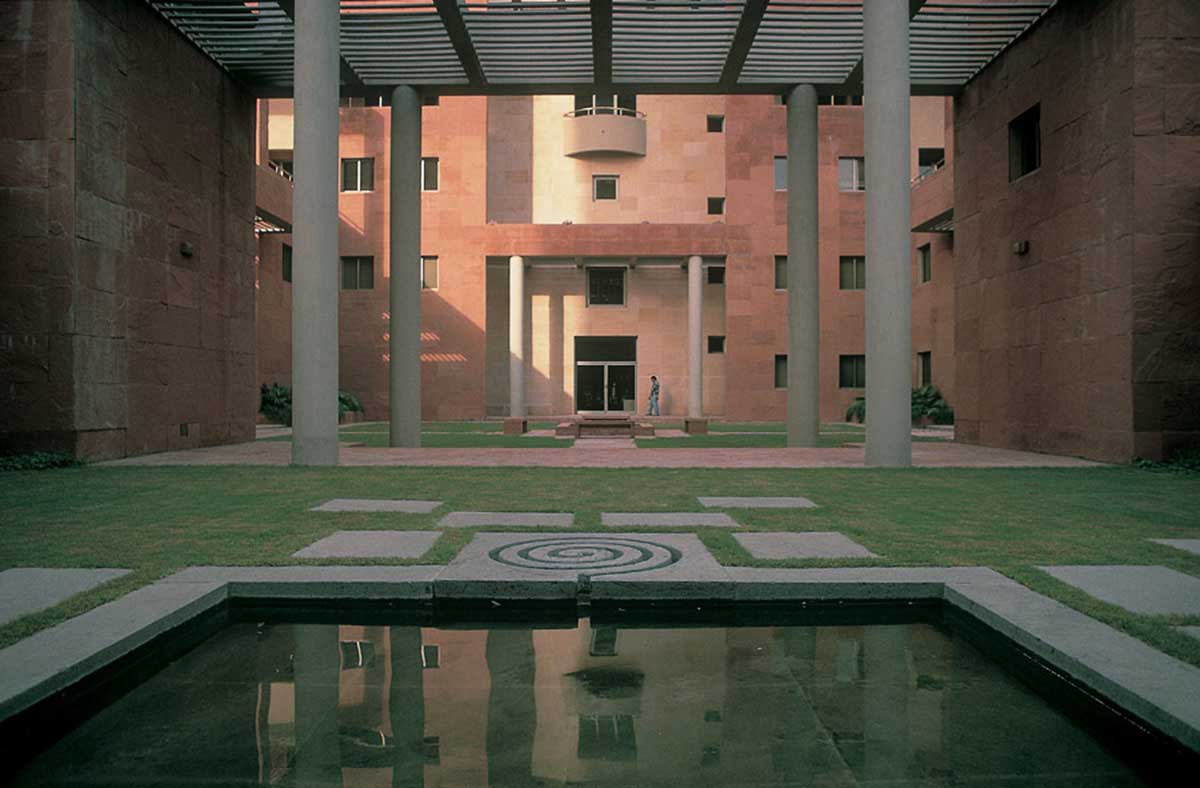Submitted by WA Contents
The State of Architecture: Practices and Processes in India
India Architecture News - Jan 14, 2016 - 11:05 11557 views

Image courtesy of Charles Correa Foundation
Celebrating Charles Correa / Work, Legacy, Contribution
The State of Architecture: Practices and Processes in India
6th January to 27th March 2016, National Gallery of Modern Art, Mumbai
"Celebrating Charles Correa" is an initiative by the Charles Correa Foundation, to commemorate his contribution through a series of curated screenings, lectures and panel discussions, on key concerns of his life's work, thus bringing into focus his legacy.
Within four broad themes: Buildings As Ideas, Cultural Projects, Housing, and Urbanisation, the deliberations aim to chronicle the contribution of his work and thought, towards the domain of architecture and the state of the profession in India. These events are planned in conjuction with the "State of Architecture" exhibition at the NGMA between January 6 and March 20, 2016.
Prof. Dr. Suha Özkan, Hon F AIA,Founder and President of World Architecture Community, is the keynote speaker within the scope of "Cultural Projects", on Saturday January 16th, 2016. Romi Khosla, Rahul Mehrotra, both Honorary Members of World Architecture Community, and Vidyadhar Phatak are also among the distinguished keynote speakers at these events.
The exhibition is organized under the co-curation of Rahul Mehrotra, Kaiwan Mehta and Ranjit Hoskote. The goal of the exhibition is to stimulate discourses on the current state of architecture in India and the emergent models of practices since 1990. It is intended that the exhibition focuses on both current issues and the nature of responses that are emerging across the Indian landscape. The main aim of this exhibition is to make this reading accessible to the lay audience as well the professional and students of architecture across the country.

Charles Correa. Image © Holcim Foundation.
Charles Correa, born in 1930, is arguably the most influential Indian architect to have worked after independence. In a prolific career spanning six decades, Charles Correa defined the paradigms of modernity for India, through his architecture, urban design, planning and writing. He was awarded the second highest civilian honour given by the Government of India, the Padma Vibushan, in 2006. He was also awarded the 1984 Royal Gold Medal for Architecture, by the Royal Institute of British Architects (RIBA). Charles Correa was one of the very first to become an Honorary Member of World Architecture Community, in 2007 and his Brain and Cognitive Science Center, was among the winners of the WA Awards 1st Cycle, in 2007.
Charles Correa's buildings honored the nature and values of India by dedicating himself to the notions of “Indian-ness” and always created a series of flowing spaces removing blurring divisions between inside and outside. Please see Correa's key projects below:

Champalimaud Foundation Cancer Centre, Lisbon, Portugal-2008-10. Charles Correa with RMJM Hillier & Consiste. Image courtesy of Rui Ochôa / Champalimaud Foundation.

Arts Centre, Jaipur, Jawahar Kala Kendra, India. Image courtesy of RIBA.

Arts Centre, Jaipur, Jawahar Kala Kendra, India. Image courtesy of RIBA.

Gandhi Ashram, Ahmedabad, India 1958-63. Image courtesy of RIBA.

House at Koramangala, India. Image courtesy of RIBA.

British Council Delhi, India. Image courtesy of RIBA.
The State of Architecture- Download Program Details
> via Charles Correa Foundation
